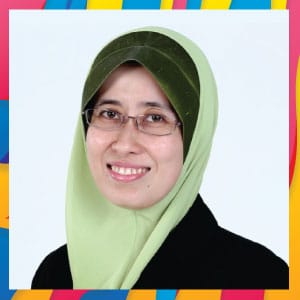Prof. Ir Dr Sharifah Rafidah Wan Alwi
Universiti Teknologi Malaysia | Director: Process Systems Engineering Centre (UTM-PROSPECT)
Prof Ir Dr Sharifah Rafidah Wan Alwi, P.B.S., CEng, MIChemE, MIEM, REEM, CEM, is the Director of Process Systems Engineering Centre of Universiti Teknologi Malaysia (UTM). Sharifah has been extensively involved in 67 research projects, 24 industrial based projects for various companies and government agencies and has trained engineers from more than 200 companies in the field of sustainable engineering design and management. She specialises in process systems engineering with emphasis on resource conservation. She has won numerous awards such as Top Research Scientists Malaysia 2018, Malaysia Research Star Award 2019, 2018 and 2016, ASEAN-US Science Prize for Women 2016 in Energy Sustainability, National Young Scientist Award 2015, ASEAN Young Scientist and Technologist Award 2014, IChemE Highly Commended Sir Frederick Warner Prize 2011 and Green Talents 2009. She is currently the Associate Editor for Journal of Cleaner Prodution (Q1) and Editorial Board member for Applied Thermal Engineering Journal (Q1). She has filed 15 patents (1 granted), 25 copyrights and developed 5 software products. She is the co-founder of UTM Spin-off company called Optimal Systems Engineering Sdn Bhd (OPTIMISE). She has also served as the Chairman for Malaysia IChemE Young Engineer Group (YEG) and is a member of Young Scientist Network, Academy of Sciences Malaysia (YSN-ASM) and Persatuan Saintis Muslim Malaysia (PERINTIS).
Speech Title
Pinching’ Eco-Industrial Park: Maximising Resource Savings and Minimising Waste and Emissions Towards SDG
Industries play a key role in providing continuous supply of human’s essential needs including food, chemicals, pharmaceuticals, building materials and equipment. Rapid population as well as industrial growth have been accompanied by rising demands for utility resources and widespread environmental pollution. Eco-industrial park (EIP) is the concept of industrial symbiosis between industries which are located within an industrial site. The concept of EIP became increasingly popular in the 1990s. It is reported by World Bank that there are already 250 EIP worldwide. The first modern EIP is Kalundborg in Denmark and is a reference for planners and industrial estates’ leaders. An EIP network of linkages leads to high levels of environmental benefits and economic efficiency apart from many other less tangible benefits. It addresses multiple Sustainable Development Goals (SDG); SDG 6-9, 12 and 13. Major economic factors that influence the successfulness of eco-industrial networking are cost savings and enhanced competitiveness; reduced infrastructure costs; improved revenue generation; improved opportunity for investment (new businesses); job creation; improved human resources; and access to and development of new technologies. All these factors improve the competitiveness, attract investments, business retention, and community wellbeing towards. As many foreign companies are growing environmentally conscious, well developed and managed industries park such as Eco-Industrial Park (EIP) should be established to attract the foreign direct investment to foster the economic competitive development. Over the last four decades, Process Integration (PI) has emerged as a holistic approach for the optimal planning, design and retrofit of minimum resource utilisation networks. PI promotes symbiosis and synergy by maximising resource utilisation efficiency and minimising wastes among interacting processes, industry and systems. In this lecture, PI techniques are discussed in the context of Eco-Industrial Park planning and management.

